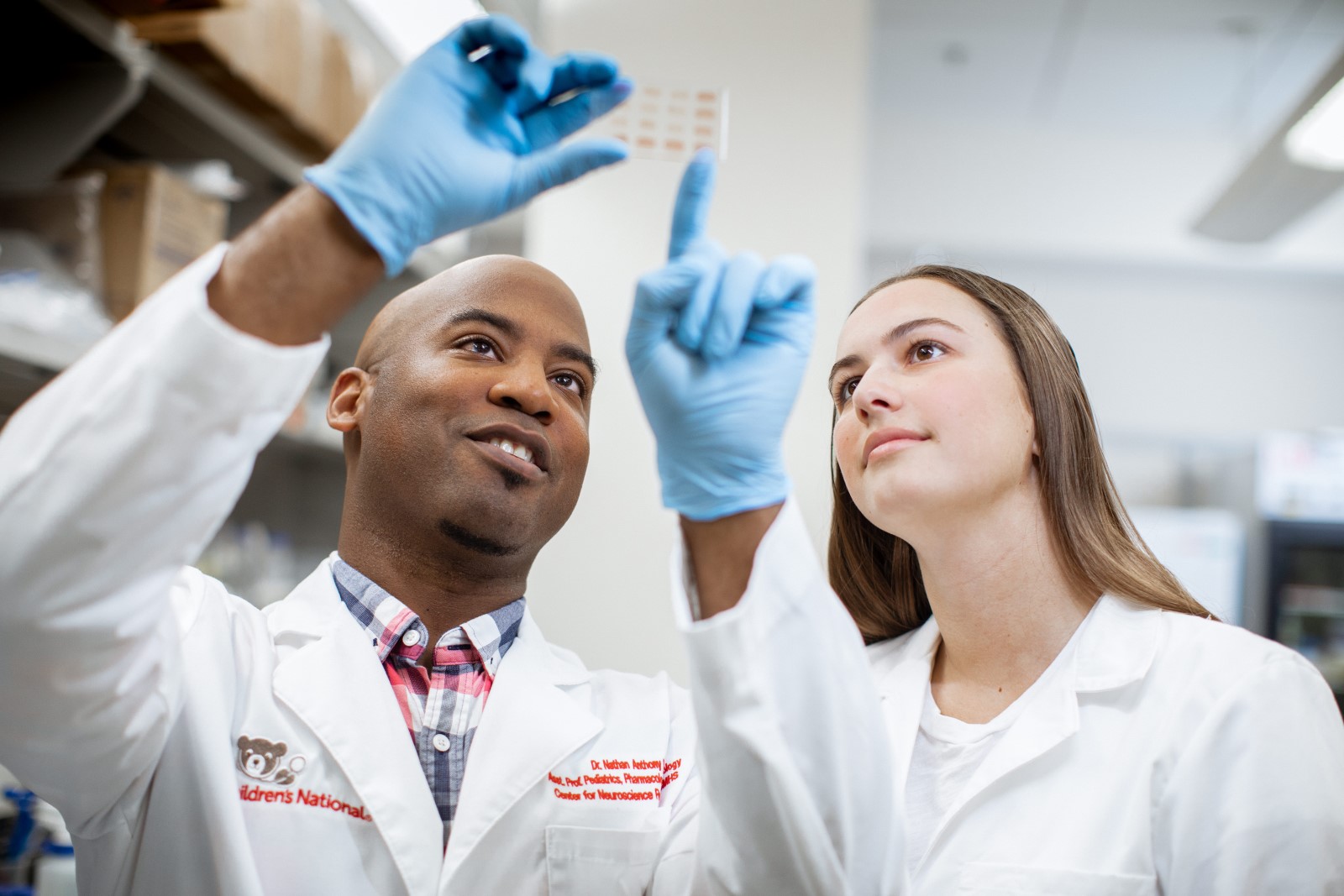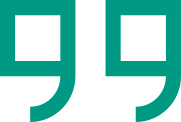Cardiovascular Surgery – Dilip Nath, MD – $13,000
Expanding on a 2012 BOV Grant which funded the study of the beneficial effects of gamma–‐ glutamylcysteine on oxidative injury caused by cardiopulmonary surgery in an innovative mouse slice model, the request is for additional funds to do more in vitro studies and validate MRI technology utilizing hypoxic stress in a mouse in vivo model. The results of the study will provide preclinical data for a relevant neuroprotective strategy to improve clinical outcome in patients undergoing pediatric cardiopulmonary surgery.
Center for Neuroscience Research – Beata Jablonska, PH.D – $12,035
Request for funding to perform a pilot study to investigate the therapeutic effect of doxorubicin after neonatal white matter injury. White matter injury is now the most common cause of brain injury in prematurely born infants and the leading cause of chronic neurological and behavioral disabilities. The current understanding of the pathogenesis in white matter injury continues to improve however; new strategies for directly preventing brain injury in premature infants are still developing.
NICU – Cathy Hines, RN – $2,800
This grant was submitted by a nurse in the NICU and approved for $2,800. The funds would be used to purchase a one–‐year supply of “Early Arrival Baby Journals” to be given away as a gift to parents of premature babies. The journal is similar to a traditional baby book but it deals with the nuances of caring for a preemie. The journal allows parents to more fully participate in the early stages of their baby’s care and it gives them a way to record the challenges and accomplishments each month.
Cardiology – Peter Dean, MD – $1,356
Provide funding for statistical assistance as part of a study about sports participation, physical activity and quality of life of patients with congenital heart disease.
Genetic Medicine – Juan Cabrera-Luque, PH.D – $20,000
Provide funds to establish two in vitro models of blood–‐brain barrier transport. These models will consist of cells lines that when cultured in the laboratory maintain their blood brain barrier characteristics. Another cell line with characteristics of brain cells will also be established. The aim of the study will be to find potential therapeutic compounds that can be used to protect 2 the brain from the deleterious effects caused by toxic levels of ammonia in the blood which can occur in patients with urea cycle defects or liver disease.
Diagnostic Imaging & Radiology – Kristen Brandolini, MS – $24,000
Provide partial funding for a second Cinema Audio/Visual System for patients who are completing MRI scans without sedation. This multi–‐media entertainment system allows patients to watch movies during lengthy and loud MRI scans. It provides crucial distraction, thus significantly reducing the need for sedation, while acquiring the best quality images. This second system will provide the opportunity for many more patients to undergo scans without sedation.
Neurology – S. Cushner-Weinstein, LCSW/S. Mehlman, PH.D – $12,000
This grant was submitted by the Director of Brainy Camps Association of Children’s National and was approved for $12,000.
These funds will help support two new family camps for children affected by diabetes and childhood obesity. The Brainy Camp are 2–‐5 day residential camps that provide medically supervised, condition specific programs for children with chronic health problems and their families. Both conditions require extensive parental/family involvement at the earliest age possible to maximize the effectiveness of treatment.
Trauma & Burn Service – Randall Burd, MD, PHD – $10,100
Because children can rapidly deteriorate after injury, the initial management and treatment (“trauma resuscitation”) must be optimal. All trauma resuscitations at CNMC are recorded using the state of the art system funded by our grant in 2009. Data on protocol compliance as well as team performance is collected from these recordings and used for education, quality improvement and to develop innovative advances in the delivery of patient care. “It has been transformative! It has saved lives,” reports Dr. Burd. Currently only 200 of the 500 annual resuscitations can be reviewed for data collection. This software will enable the team to review every event and thereby increase their education, performance improvement and research.
Hematology/Oncology – Amanda Thompson, PH.D – $750
Provide partial funding to translate existing unit educational materials into Spanish.
Hematology/Oncology – A. Thompson,PH.D/K. Phlegar – $380
Purchase two iPad applications of Proloquo2Go, an augmentative and alternative communication solution for patients who are unable to communicate in written or spoken English.
Family Library – Lyn Ingersoll, Family Librarian – $2,000
Funds to purchase new and updated books for the Health Resource Collection. This collection is used by patients and families–‐–‐ helping them understand their possible diagnosis and/or treatment.
Otolaryngology – N.Bauman, MD, S. Sehgal,MD, F.Ogunlesi,MD, C. Ritthaler, MD – $35,000
This is a request from the new Aerodigestive Clinic – a multidisciplinary clinic that deals with patients who have complex medical problems of the airway and gastrointestinal systems. The request is for funding to purchase equipment that enables the laryngeal exam to be viewed, not just by the examining physician, but by all the Clinic doctors, as well as by patients and their families. This equipment also preserves images for future comparisons.
Neuroscience – Research Jason Tripplett, PH.D – $11,000
Request funds for a sliding microtome that will be used by several labs within the Center for Neuroscience Research. This piece of equipment allows for thin sectioning of frozen brain tissue , which allows for histological analysis of cytoarchitecture, protein and gene expression and neuronal projection patterns.
No. VA. Outpatient Center – Cody Collins, Ambulatory Technician – $8,275
This grant fully funds two items for the Northern Virginia Outpatient Clinic of CNMC. The first is Vecta; a portable versatile sensory experience that will help distract patients while clinical procedures are performed. This sensory experience includes a large vertical water bubble tube at the center that changes color, s a solid image projector, aroma diffuser and 100–‐tail fiber optic tube that change color along with the bubble tube. The Vecta, about the size of a portable x–‐ray, would be utilized during venipuncture, allergy injections and testing, EEG and EKG procedures. The second is the AccuVein AV300, which displays peripheral veins beneath the skin, simply by pointing it at the skin. This will reduce the number of venipuncture attempts on the patients, providing a much better experience for them.
Cardiology – Robin Doroshow, MD, MMS – $2,330
Funding to evaluate the efficacy of a new self–‐study program in training second –year pediatric residents to distinguish between heart murmurs which are innocent and those which are pathological ( “guilty”) and to assess the effect on their level of confidence in making that distinction.
Orthopedic Surgery – Benjamin Martin, MD – $15,550
Fractures of long bones (the tibia and humerus to name a few) in children is common. Most of these fractures do not require surgery but do require cast immobilization. Throughout the healing process, frequent X–‐rays are taken of the child’s fractured bone to ensure the fracture 4 maintains alignment and that it heals in the appropriate position. The drawback to this conventional process of multiple X–‐rays is exposing the pediatric patient to ionizing radiation. The Orthopaedic and Sports Medicine Clinic at Children’s National Hospital believes it is possible to use DXA scans (typically used to measure bone density) to assess the long bone fracture alignment. DXA Scans use ionizing radiation at a much lower dose, exposing the patients to far less radiation over the course of the fractured bone’s treatment and healing. The study will assess the clinical feasibility, accuracy and safety of DXA scans. It has the potential to lead to a change in the clinical assessment of these factures and decrease the pediatric patient’s exposure of radiation.
Nursing – Eileen Waters, BS, RN – $2,000
The Autism Awareness Team and 7 East Nursing are asking for funds to purchase resources for working with patients with autism in the inpatient hospital setting.
Diagnostic Imaging & Radiology – Mollada Denslow, RN – $1,154
Purchase a Snoezelen 100C Solar Effects Projector, wheel rotator and effect wheels to be utilized as a distraction tool during diagnostic imaging exams to help reduce anxiety, minimize repeated exams, and increase the patient’s ability to cope with stressful medical tests and procedures at Children’s Imaging Center of Rockville.
Center for Neuroscience – Joshua Corbin – $27,706
Purchase a Hamamastu Camera specifically designed for imaging neuronal activity in live slice cultures and upgrading our capabilities from single to multiple fluorescent viewing channels on an existing high–‐ end Zeiss microscope.
Genetic Medicine – Gustavo Nino, MD – $24,843
Purchase supplies for a pilot study to investigate miRNA–‐based therapy to treat airway genetic reprogramming in asthma. This innovative approach could have a great impact for CNMC as asthma affects over 10 million children and its prevalence is much higher in the District of Columbia than nationwide.
Cardiology – Anitha John, MD, Sarah Clauss, MD – $25,000
This grant partially funds the purchase of a SphygmoCor CPV System, a tool used to measure pulse wave velocity. This is a measurement used to determine vascular health, and will initially be used for a study of patients who have had aorta or bicuspid aortic valve repair, to determine the outlook for their cardiac health as adults. In addition, this equipment will be used by many other researchers within the department in pediatric patients with other diseases which predispose early coronary disease such as 5 diabetes and hypertension. It has broad implications for identification of patients with high risk factors and will allow CNMC to be on the forefront of diagnostics techniques in pediatrics.
Pulmonary – Delgado, Sami, Sankoonkal, Fellows – $1,984
Funding to create a “CF Passport” which will provide an “at–‐a–‐glance” summary of cystic fibrosis patients’ condition and treatment plan. These patients have frequent hospital and clinic visits for pulmonary and respiratory problems The passport will help to expedite the care of these patients by providing the caregivers with easily accessible information regarding their current condition and therapy.
Hospitalist – Jimmy Beck, Fellow – $2,522
Funds to study specific behaviors and strategies of pediatric hospitalists and subspecialists that promote effective learning during Family Centered Rounds.
Plastic Surgery & Neurosurgery – Albert Oh, MD – $35,000
This grant will partially fund the purchase of the 3dMDcranial system, a high quality 3D imaging system designed specifically to study craniofacial morphology. This equipment is a very valuable tool for surgeons correcting craniofacial abnormalities and also dramatically reduces pediatric patients’ exposure to radiation (this reduction in exposure is quantifiable—for a surgical patient it would be used within one week of surgery, 12 weeks after surgery, at 1 year and 18 months of age, three years of age and at subsequent yearly visits). Additional funding for the purchase of this system will be provided by the requesting departments, which will complete the purchase for $112,950.00.
Surgery – Iris Rubin, MD – $35,000
Purchase a fractionated non‐ablative laser to improve pediatric burn scars. Adding fractionated laser treatment to the multidisciplinary approach for pediatric burn scars has the potential to significantly improve scar disfigurement and self–‐esteem in children.
Orthopaedic Surgery & Sports Medicine- M. Oetgen,MD, R. Thoranaghatte, M.D., K. Cleary, Ph.D. – $24,000
Funds to assist in the design and manufacturing of a computer–‐navigated robotic assisted surgical technique to stabilize the hips of pediatric patients with Slipped Capital Femoral Epiphysis.
Total Awards – $349,785

Grants awarded by the Founders Auxiliary Board have inspired change and transformative advances in diverse areas of service throughout the hospital. Past awards have supported research, child wellness initiatives such as concussion prevention, immunizations, cutting-edge equipment and technology, pediatric surgical robots, professional development, and educational support.

